MFA vs NYC vs WWE
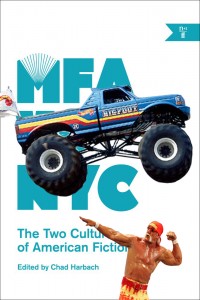 The ring is sparsely decorated: a white mat with pleasant turquoise bands to hold the war in. The crowd’s looking at it. The lights go down. Chad Harbach walks out into the middle of the ring. The crowd goes silent.
The ring is sparsely decorated: a white mat with pleasant turquoise bands to hold the war in. The crowd’s looking at it. The lights go down. Chad Harbach walks out into the middle of the ring. The crowd goes silent.
He clears his throat. Points a rusty revolver at the ceiling. Fires it.
George Saunders crawls under the ropes with a folding chair and unfurls it, sitting down cross-legged in the corner of the ring. Chad Harbach has retreated to the announcer’s table. Meanwhile, Maria Adelmann walks onstage with her hands in her pockets. She looks out idly at the stage-lights, the thousands gathered in the stands. Suddenly Eric Bennett leaps into the ring with a sheaf of paper and clocks Adelmann in the head with it. He stands there, suddenly mournful, looking at what he’s done. George Saunders still sits on his folding chair with his hands in his pockets, looking mildly perplexed.
March 26th, 2014 / 11:00 am
Witch Piss
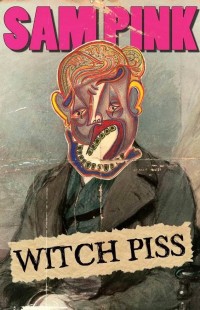 Witch Piss
Witch Piss
by Sam Pink
Lazy Fascist Press, 2014
112 pages / $8.95 buy from Amazon
Rating: 7.0
Witch Piss is the bottom of a forty oz.
Witch Piss is a novel.
Witch Piss is published by Lazy Fascist Press.
Witch Piss is Sam Pink writing about a Sam Pink-like narrator.
Witch Piss is homeless men.
Witch Piss is “Y’gah be kiddin me.”
Witch Piss is a slurry of language.
Witch Piss is written in dialect.
Witch Piss is a man named Spider-Man.
Witch Piss is a girl named Janet in a dirty Depends.
March 25th, 2014 / 12:00 pm
Ringing Bell
Ringing Bell. Have you seen Ringing Bell? I can’t believe I didn’t know about this film until a few weeks ago.
Ringing Bell (Chirin no suzu) is a Japanese film released in 1978 by Sanrio, the very same company that gave us Hello Kitty.
Ringing Bell is about a cuddly little lamb (“Ringing Bell”) who is always getting lost, and whose mother therefore outfits him with (guess what?) a ringing bell.
Ringing Bell’s mother warns Ringing Bell not to venture beyond the paddock, for fear of the wolf who lurks out there, being the mortal enemy of the lamb!
Can you guess what happens to Ringing Bell?
HILL WILLIAM by Scott McClanahan
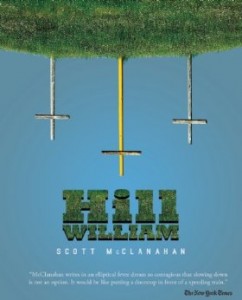 Hill William
Hill William
by Scott McClanahan
Tyrant Books, November 2013
200 pages / $14.95 Buy from Amazon
Today was a day I skipped lunch for Newcastles. It was 83 degrees outside and I nestled into a lawn chair with Hill William and a shirtdress that had no pants. As soon as I started and the beers grabbed hold I wanted to tell someone about it because EMOTIONS so I thought I would tell Siri. This is what she said back because she is like a parrot. Exactly like a parrot because parrots aren’t exact and can’t get everything right. But luckily there is a cage around them so you can’t hurt them easily.
I’m going to drunkenly live Siri Scott McClanahan’s Hill William
March 24th, 2014 / 11:00 am
………..what poetry “community” would be like in an ideal world………..
Spork’s Six New Books

available from Spork now — & at Mellow Pages
The handmade books of Spork Press are spreading across the literary universe, leaving the Spork collective ‘more psyched than ever.’
On any given evening, in the middle of any given week, just off of Fourth Avenue, you might stumble across the editors of Spork Press as they dutifully work on their next set of printings.
They might have music blaring out of the carport in which they work while they press ink onto boards using a half-century-old machine. They might be sipping beers, mixing and transferring music mixes onto cassette tapes. They could be listening to audiobooks, evening out the edges of their work—literally, with a belt sander.
(…..from The Tucson Weekly, “An Analog Experience”)
Yes, Spork makes beautiful books and recently debuted their 6 newest creations (“artifacts”) at AWP here in my backyard (Seattle, which is just across the lake from Kirkland, home of Costco, etc). The Tucson Weekly reports that AWP was a “huge success” for Spork, selling “more than 400 books.”
So, anyways, here is a bit of a roundup of Spork’s 6 new books with a bit of verbiage about each book and/or the author. (and, yes, I’m one of these 6 authors so if you think this is uncool, well, go ahead and sue me).
****************
Sunday Service: J. Hope Stein
Chapter 7.
Ballad of your Boss
Don’t hesitate to serve your boss.
Sit quietly and he will come to you.
The blessing of an employee
is in the corners of her mouth.
The blessing of a plot
is in its time of being worked.
When a great boss says “I kill you”
lay your head across his laptop.
Throw your documents in the river.
This is how we measure time.
The blessing of a plot
is in its time of being worked.
Do not despise small documents.
Do good for your body, but
there is no one who does not die—
Do not delay in your office.
The blessing of a plot
is in its time of being worked.
Be a cat in your boss’s presence.
Do not give a wary look
towards the elevator door—
You do not know the length of your life.
The blessing of a plot
is in its time of being worked.
Do not hesitate to serve your boss.
Do let linger without enquiry.
Put myrrh on your head, dress in fine linen.
Sit quietly and he will come to you.
The blessing of a plot
is in its time of being worked.
Bio: J. Hope Stein is the author of the chapbooks Talking Doll (Dancing Girl Press, 2012), Mary (Hyacinth Girl Press, 2012) and Corner Office (H_ngm_n, 2011). Her work is published or forthcoming in Verse, Tarpaulin Sky, Everyday Genius, Ping Pong, Web del Sol, movingpoems.com and Poetry International. J. Hope Stein is also the editor of poetrycrush.com and the author of the poetry/humor site eecattings.com.
Actors Anonymous by James Franco
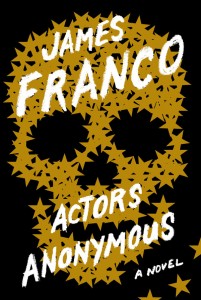 Actors Anonymous
Actors Anonymous
by James Franco
Little A / New Harvest, Oct 2013
304 pages / $26 Buy from Amazon
James Franco seems to want to be anything he can think of. He is an actor-writer-director-producer-musician-artist, as well as a PHD candidate. This novel, Actors Anonymous, suffers from the same desires that the author does; it wants to be every kind of novel it can think of. The novel-group of stories-abstract meta sentences is arranged in a sort of alcoholics anonymous style, with twelve chapters apparently representing the twelve steps.
March 21st, 2014 / 11:00 am
Autobiography of a Corpse, by Sigizmund Krzhizhanovsky: A fifteen-point primer on certain literary avant-gardisms
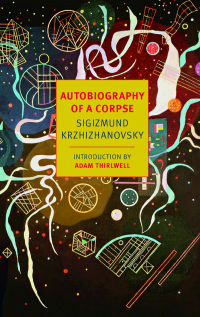 Autobiography of a Corpse
Autobiography of a Corpse
by Sigizmund Krzhizhanovsky
New York Review of Books Classics, 2013
256 pages / $15.95 buy from Amazon
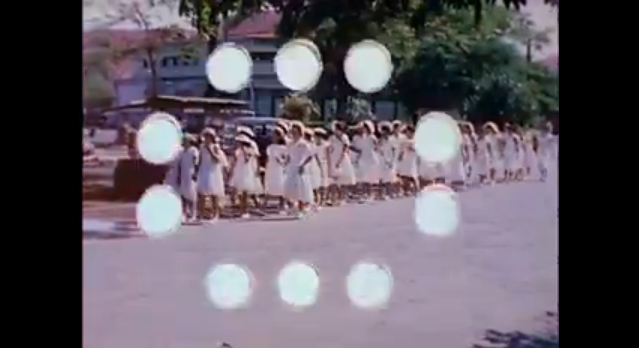
In the beginning/ the Avant-Garde/ was just a silly thing/ Coconut-colored sidewalks/ Women with blue-white parasols/ tilting over backward/ or half backward/ in the beginning/ And then it grew, and became gigantic and hard/ Like a great, great stone, the Avant-Garde/ Like a great, great, stone that had usurped all of history—Kenneth Koch, One Thousand Avant-Garde Plays
1. The history of the 20th century avant-garde is a history of anxieties. And even as manifestos gave way to splinter groups, many things remained constant. A central tenant of this history came in the compulsion against modernity and the constricting social forces of advanced industrial capitalism. Sigizmund Krzhizhanovsky wrote radical literary fantasia, and his work reflects many of the anxieties and themes that would develop across literary avant-gardes throughout the 20th century.
Born in Kiev in 1887, Sigizmund Krzhizhanovsky moved to Moscow in 1922 where he worked as a lecturer and theater critic. From this time until his death in 1950, he secretly compiled an incredible body of fantastic novels and stories. These were not published in his lifetime, and owing to the damning soviet censorship, would not be published until 1989. This collection Autobiography of a Corpse, a selection of short stories was published for the first time in 2010, and an English edition came out from NYRB Classics in the fall of 2013. The collection, provocative and expansive, offers a look at many anxieties and themes that would come to define the avant-garde.
March 20th, 2014 / 6:27 pm


